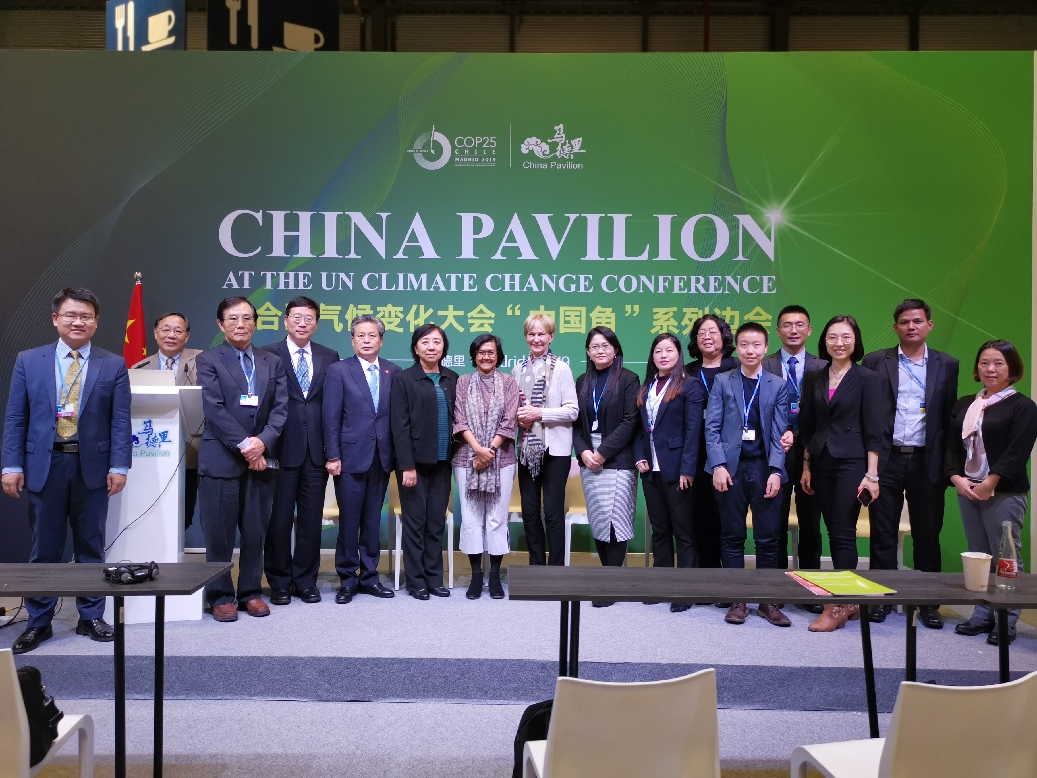On 12 December 2019, the China Pavilion Side Event “ASEAN-China Regional Cooperation on Climate Change” was held successfully on the sidelines of the United Nations Framework Convention on Climate Change the 25th Conference of Parties (UNFCCC COP25) in Madrid, Spain. This Event was co-hosted by Global Climate Action Initiative (GCAI) Secretariat, Institutes of Science and Development of Chinese Academy of Sciences (CASISD) and Global Environmental Institute (GEI). Mr. Zhao Yingmin, Vice Minister of China’s Ministry of Ecology and Environment, Mr. Chen Dehai, Secretary-General of ASEAN-China Centre (ACC), Mr. Li Haiyan, Secretary-General of GCAI, Mr. Wang Yi, Standing Committee Member of Chinese National People’s Congress and Vice President of CASISD, Mr. Zhang Jiqiang, Steering Board Chair of GEI, as well as government officials, experts, representatives of NGOs and enterprises from China and ASEAN countries such as Indonesia and Myanmar attended the event.
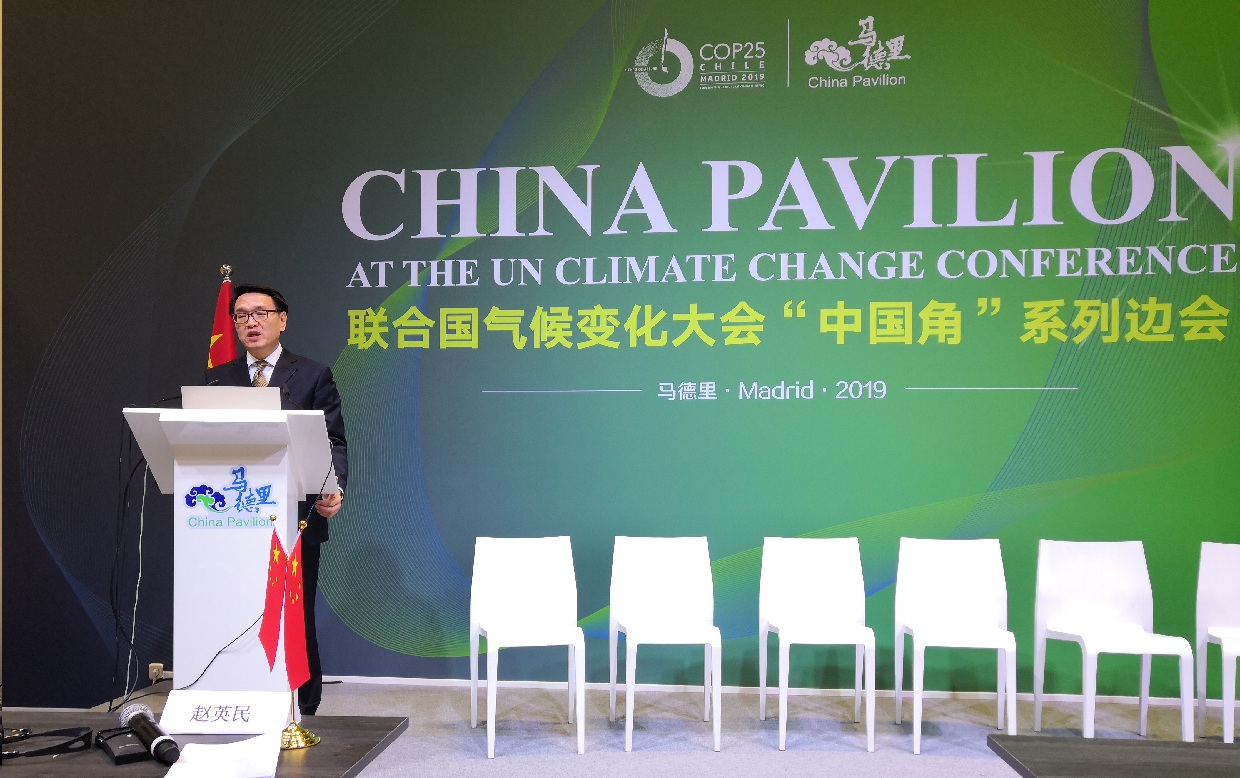
In his opening remarks, Vice Minister Zhao Yingmin said that climate change is a major threat and an urgent challenge facing all mankind, which requires concerted efforts of the international community. As developing countries, China and ASEAN countries share common challenges and great potential for cooperation in addressing climate change. China is willing to strengthen policy dialogue and practical cooperation with ASEAN in terms of climate change adaptation and mitigation, mangrove protection, disaster prevention and early warning, to create new highlights for ASEAN-China cooperation and jointly make contributions to the global campaign on climate change.
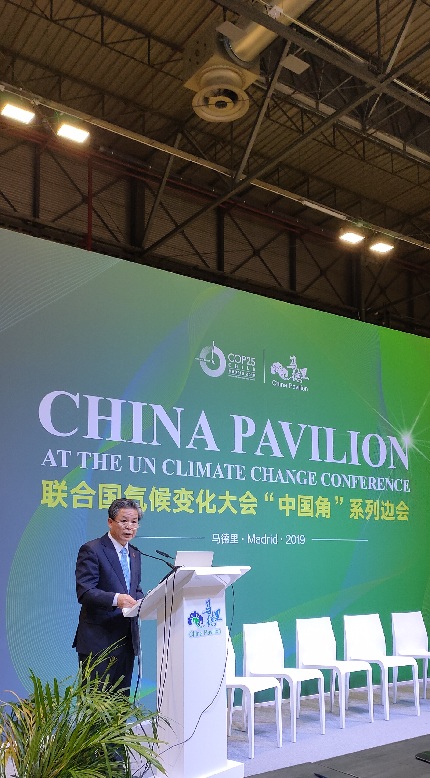
Secretary-General Chen Dehai said that with the ASEAN-China relations entering a new phase of all-around development, the cooperation between the two sides on climate change has been progressing rapidly. The 22nd ASEAN-China Summit in early November injected new impetus into the ASEAN-China strategic partnership and further broadened the prospect for cooperation on climate change, green development and blue economy. ASEAN-China Centre will step up its efforts to push forward such cooperation between the two sides.
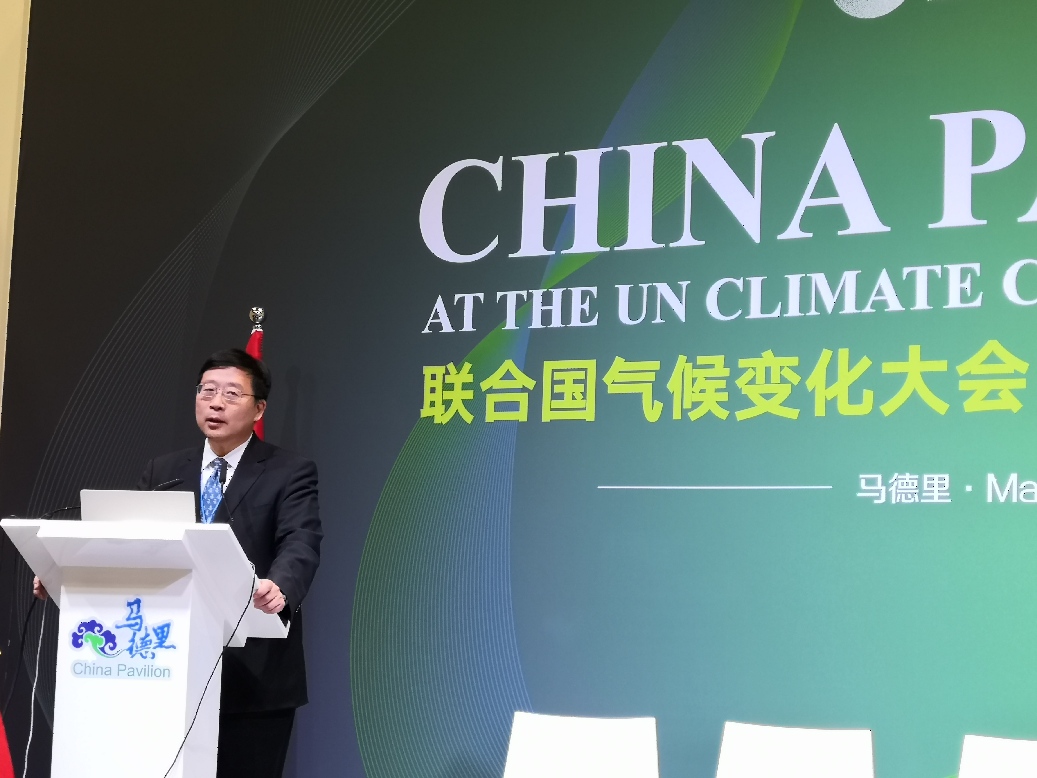
In his key-note speech, Vice President Wang Yi briefed on China’s experiences in ecological and environmental protection could lend strength to ASEAN-China cooperation. To realize low-carbon and climate-resilience transition, ASEAN and China should transform growth model and promote structural reform, set prioritized areas, adopt nature-based solutions, promote cooperation on regional mangrove conservation and deforestation-free agro-products trading, so as to pursue green development featured by inclusiveness, cooperation and mutual benefit.
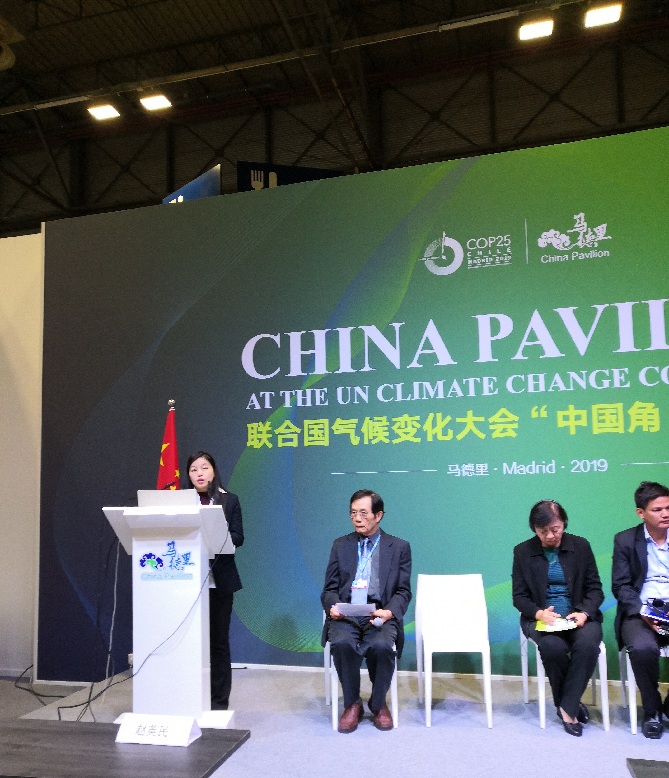
In the following panel discussion, Ms. Wang Hongliu, Director of General Affairs and Coordination Division of ACC gave a presentation on ACC’s efforts in promoting ASEAN-China cooperation on climate change. She said that there is no time to lose, and that ACC is ready to play a bigger and more active role in promoting ASEAN-China cooperation on climate change and sustainable development.
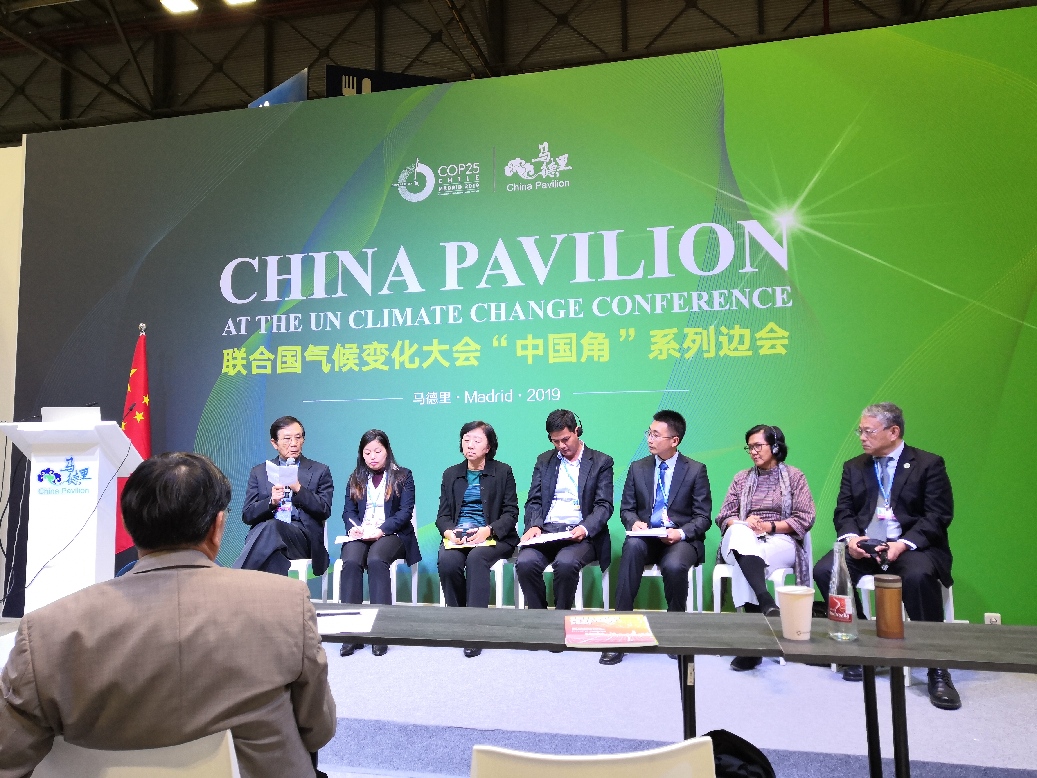
As generally agreed by all participants, ASEAN and China are close neighbours with similar needs and huge potential for cooperation in addressing climate change and pursuing green development, which could become a new highlight in ASEAN-China cooperation. The two sides should strengthen exchanges and dialogues on climate change adaptation and mitigation, further enhance intra-regional South-South cooperation, strengthen capacity-building and effectively promote the development of renewable energy and energy transition in the region.
